Turning points: Syria and the Russian diplomacy. Stalingrad syndrome.
“Damascus is the “Stalingrad” of Russian diplomacy. After years of geopolitical withdrawal, Moscow has chosen Syria as a way to revive its image of power in the world. “Not one step back” is the Kremlin’s new strategy, as it was for the Red Army along the banks of the Volga river during World War II. To be more convincing, the Kremlin has simultaneously flexed its muscles by supplying sophisticated […]
Uzbekistan, Andijon. 15 years later.
13 May 2020Fifteen years after the Andijon massacre in Uzbekistan, rights activists have urged the Central Asian country’s leadership to openly investigate the killings of dozens of mainly peaceful demonstrators by security forces and armed soldiers in the eastern city. The Sweden-based Civil Rights Defenders group said 15 years to the day of the massacre, that no state or army official was held responsible for “brutally” suppressing the civilian protest in the city of Andijon.”
Source: RFE/RL
Russia, celebrazioni del 75esimo anniversario della Vittoria in tono minore per il coronavirus.
9 May 2020“Sappiamo e
crediamo con forza che siamo invincibili quando siamo insieme. Buona
Festa della Vittoria. Urrà”. Così
Vladimir Putin ha aperto davanti al Milito ignoto le celebrazioni per il 75esimo anniversario della Fine della
Seconda guerra mondiale nella zona europea della Russia.
A causa del coronavirus molte
manifestazioni sono state rimandate. Ma “La parata militare sulla piazza Rossa e la marcia del Reggimento immortale si faranno” ha promesso Vladimir
Putin. Sulla stampa è stato scritto che la data scelta è quella del 3 settembre.
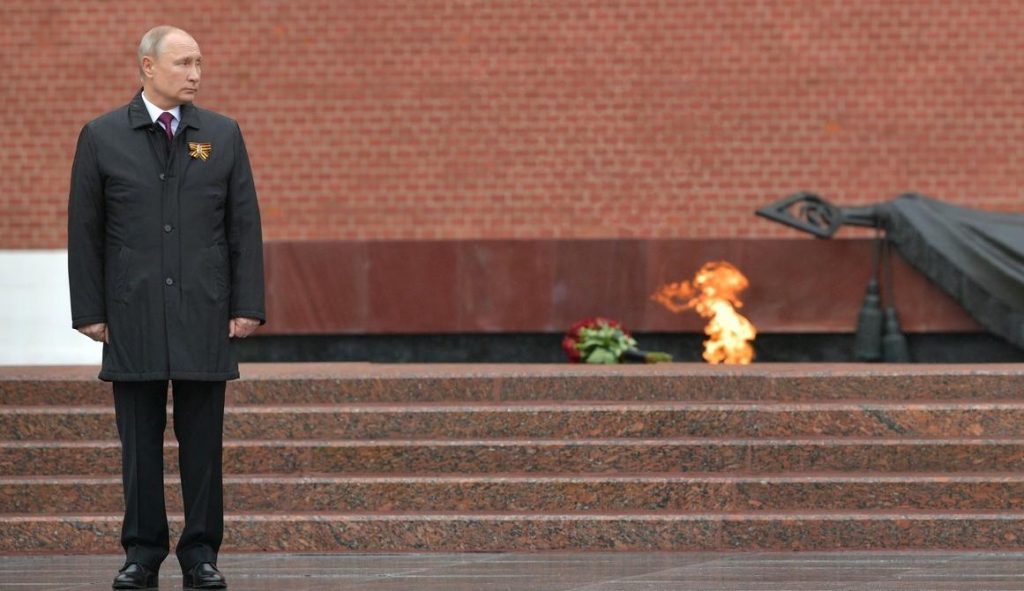
Subito dopo il discorso presidenziale sono iniziate le parate aeree. In totale in 47 città con la partecipazione di 660 velivoli.
Le principali sulla Piazza rossa a Mosca, lungo il corso del fiume Nevà a San Pietroburgo e sul porto di Sebastopoli. In queste ultime due località si sono anche tenute esibizioni navali.
Tutti i canali federali mostrano le varie manifestazioni, documenti storici e film. Su Internet tantissime sono le iniziative. Chiusura con concerti e fuochi d’artificio.
gda
Poland, 10th anniversary of Smolensk disaster.
10 Apr 2020 Poland has marked the 10th anniversary of the plane crash that killed President Lech Kaczynski and 95 others. A large number of Poles, including President Andrzej Duda, suspect that the crash was not caused by pilot error, as concluded in an investigation by Poland’s previous centrist government, but by foul play. “After 10 years, it’s difficult to say anything or predict whether the case can ever be resolved,” said Duda, after visiting Kaczynski’s grave in Krakow. “We don’t have basic evidence, the wreckage is still in Russia, the black boxes are still in Russia.” Poland’s foreign ministry said in a statement that it had renewed demands that Moscow returned the wreckage of the ageing Tupolev aircraft. “There are no provisions in international law that allow Russia to withhold Polish property,” it said.
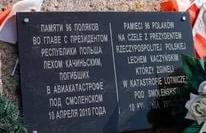
Russian authorities said that there is no evidence of an explosion on board the plane, as some in Poland allege. Russia’s Investigative Committee said in a statement that crew errors led to the accident. “The aircraft collided with a tree trunk at a height of about 11m,” it said. “As a result of the detachment of part of a wing, the aircraft began to rotate and after a few seconds fell to the ground in an upside down position.” President Kaczynsky and 95 highest-ranking officials were on their way to commemorate the Katyn massacre. The Katyn forest, alongside Mednoye, Kharkiv, Bykivnia and Kuropaty, is where a terrifying act of mass executions was carried out by the Soviet authorities in the spring of 1940. It took more than 22.000 lives of prisoners of war and imprisoned civilians, members of the country’s elite.
CoronaVirus, Russia in lockdown.
29 Mar 2020 “We have managed to win time and slow down an explosive spread of the disease in the previous weeks, and we need to use that time reserve to the full,” Vladimir Putin said.
The Russian president has declared that only people employed by essential sectors should work, leaving it to regional authorities to spell out the details. Moscow Mayor Sergei Sobyanin followed up by ordering Muscovites to stay home.
Russia took early steps to counter the outbreak, closing the borders with China and then barring access to Chinese citizens in February, when China was still the world’s hottest coronavirus spot.
Source: AP
Умер писатель и политик Эдуард Лимонов.
19 Mar 2020 Писатель и политик Эдуард Лимонов скончался на 78-м году жизни из-за осложнений после операции.
Эдуард Лимонов (настоящая фамилия – Савенко) родился в 1943 году в Харькове. Стихи он начал писать в 15 лет, однако первый роман – “Это я, Эдичка” – опубликовал только в 1976 году и уже в США, куда эмигрировал в 1974 году – как он сам объяснял, из-за давления КГБ.
В США писатель вступил в социалистическую партию и критиковал местные власти. В 1980 году он переехал во Францию, где поддерживал коммунистическую партию, а в 1987 году получил французское гражданство. В те годы он опубликовал еще семь повестей и романов, а также несколько сборников рассказов.
После распада СССР он вернулся в Россию и восстановил российское гражданство. Тогда же в России впервые начали издаваться его художественные произведения.
В 1993 году Лимонов основал Национал-большевистскую партию, которую впоследствии российский суд признал экстремистской организацией и запретил. В 2010 году на ее основе была создана новая оппозиционная партия под названием “Другая Россия“.
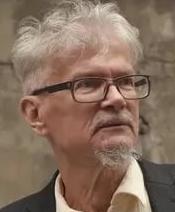
Лимонов был одним из
создателей “Стратегии-31” –
регулярной акции, которая проводилась по 31-м числам месяцев. Ее участники
выступали в поддержку 31-й статьи Конституции России, которая гарантирует
гражданам свободу собраний.
Автор ряда книг, самыми известными
из которых считаются «Это я —
Эдичка», «Палач», «Иностранец в смутное время».
Лимонов заключил договор на новую
книгу несколько дней перед смерти. Книга называется «Старик путешествует». Она уже написана. Права куплены издательством
Individuum.
Источник: BBC
Il dado è tratto! Vladimir Putin potrà ricandidarsi ancora per due mandati presidenziali dopo il 2024. Questo è il risultato della discussione alla Duma e la successiva approvazione in seconda lettura dei cambiamenti alla Costituzione, che verrà portata al referendum.
“Vediamo come il mondo cambia – ad un certo
punto ha preso la parola inaspettatamente Valentina
Tereshkova, prima donna cosmonauta e fedelissima del presidente -. Ovunque
tutti i discorsi riguardano Vladimir Putin. La gente è preoccupata di cosa
possa accadere dopo il 2024. Dobbiamo cancellare le limitazioni ai mandati
presidenziali e concedere la possibilità all’attuale capo di Stato di
candidarsi con una nuova Costituzione. Questo sarebbe un fattore di
stabilizzazione per la nostra società”.
A questo punto lo speaker della Duma, Vjaceslav Volodin, ha proposto un’ora e
mezza di intervallo per consultazioni con il Cremlino e verificare se tale
emendamento potesse essere accettato.
Alle 15,15 è arrivato in Parlamento Vladimir Putin in
persona. “Non c’è voglia di tornare ai tempi dell’Unione Sovietica”, ha
risposto ai deputati il capo del Cremlino in merito alla cancellazione dei due
mandati presidenziali dalla Costituzione, aggiungendo che nel lungo periodo il
Paese “ha bisogno della garanzia che le persone
al potere possano essere cambiate
regolarmente” e che “una forte Presidenza è assolutamente essenziale”.
Ma il “reset” dei mandati (ossia azzeramento) con una nuova Legge
fondamentale – ha proseguito Vladimir Putin – “sarebbe possibile se la Corte Costituzionale confermerà
ufficialmente che tale emendamento non violi le leggi”.
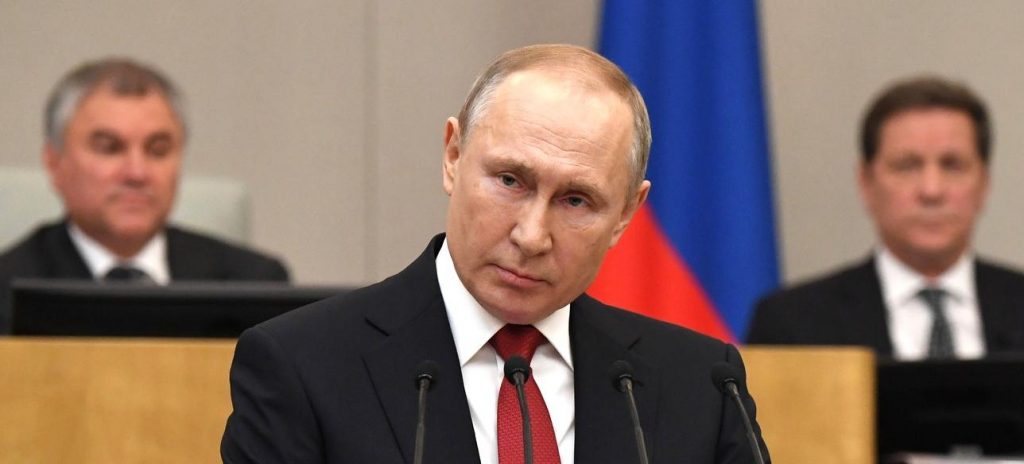
Subito dopo il capo del Cremlino ha lasciato l’aula, dove è stata messa in votazione la proposta della Tereshkova: 380 i voti favorevoli, 43 contro (i comunisti), un astenuto.
Le reazioni delle opposizioni riformiste-liberali – non rappresentate alla Duma – sono state assai dure.
Gda
Denis Shmygal è il nuovo primo ministro ucraino. La Rada, il Parlamento nazionale riunitosi in sessione straordinaria, gli ha concesso la fiducia con un’ampia maggioranza. 291 sono stati i voti a favore. Da tempo il presidente Vladimir Zelensky era insoddisfatto dell’Esecutivo, nato dopo la vittoria alle legislative nel luglio passato dei suoi fedelissimi, ed ha deciso un inatteso rimpasto.
A metà gennaio il leader ucraino aveva rigettato le dimissioni dell’ora ex premier, il 35enne Aleksej Goncharuk, dopo che alcune sue dichiarazioni polemiche contro l’operato di alti funzionari dello Stato erano giunte con un audio rubato alla stampa. “Credo fermamente – ha sintetizzato Vladimir Zelensky all’apertura della crisi – che il precedente Esecutivo abbia fatto tutto il possibile, ma oggi gli ucraini hanno bisogno di un governo che sappia fare l’impossibile”. Martedì sera, a porte chiuse, il presidente aveva chiesto al quasi sconosciuto vicepremier Shmygal ed ad alcuni nuovi ministri di formare il nuovo governo senza perdere tempo.
L’Ucraina è in ritardo sul programma delle riforme, soprattutto del settore bancario. Uno dei finanziatori di Zelensky, l’oligarca Igor Kolomoisky, ha impugnato in tribunale la nazionalizzazione (avvenuta nel 2016) di uno dei maggiori istituti del Paese – la PrivatBank – e nega di essere responsabile del buco di 5,5 miliardi di dollari, causa dell’intervento dello Stato.
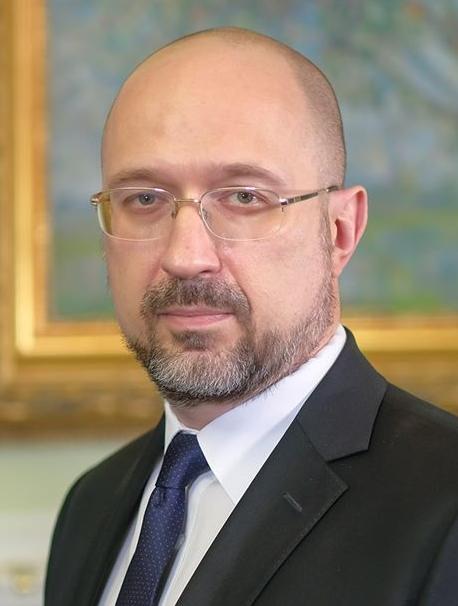
L’economista 44enne, Denis Shmygal, è originario di Leopoli, dove ha fatto esperienza nell’amministrazione regionale. Nel 2018 ha lavorato per un’azienda energetica dell’oligarca Akhmetov. Shmygal è favorevole alla privatizzazione della terra, alla decentralizzazione, alla riforma fiscale, alla lotta senza quartiere alla corruzione, alla digitalizzazione dello Stato.
Gda
Un fulmine a ciel sereno, un terremoto dagli
esiti poco chiari. La mattinata è iniziata con l’annuale discorso sullo stato della Federazione
a Camere unite del presidente Vladimir Putin.
Il capo del Cremlino ha annunciato a
sorpresa l’avvio delle riforme del sistema politico con ben sette emendamenti
costituzionali da far approvare al popolo in un referendum, probabilmente entro
l’estate.
Una manciata di ore dopo, quando
commentatori ed analisti stavano tentando di comprendere quale fosse il vero
gioco di Vladimir Putin, il premier
Dmitrij Medvedev con tutto il suo Esecutivo ha deciso di dimettersi come da
articolo 117 della Costituzione.
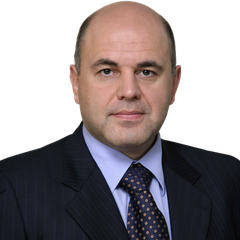
Michail Mishustin
Dopo ancora un paio di ore il presidente russo ha
conferito l’incarico di formare il nuovo governo al capo del Fisco federale, lo
sconosciuto Michail Mishustin.
La sensazione generale è che con questa
mossa il presidente russo voglia riformare la politica nazionale in un momento
in cui è ancora popolare, nonostante la crisi economica, ed un anno prima delle
Legislative del 2021.
La gente in genere fino ad oggi ha
incolpato il premier dimissionario per le difficoltà
quotidiane e per l’incapacità del governo di mantenere ordine nelle enormi
regioni. Dmitrij Medvedev non ha saputo
spendere bene i soldi messi a disposizione, puntano il dito alcuni noti
editorialisti, che utilizzano l’aggettivo “inadeguato”.
Ad onor del vero, l’ex primo ministro
sembra attualmente il capro espiatorio
della presente stagnazione e di tutto quel che non va in Russia. Sintomatico è
il messaggio mediatico che circola sui canali federali, in cui si rammenta che Medvedev è stato presidente dal 2008 al 2012 e capo
del governo dal 2012 al 2020. In totale ben 12 anni al potere.
gda
Russia, Turkey: TurkStream launched.
8 Jan 2020The presidents of Turkey and Russia formally launched the TurkStream pipeline which will carry Russian natural gas to southern Europe through Turkey, part of Moscow’s efforts to reduce shipments via Ukraine.
The pipeline project, stretching 930 kilometers (580 miles) across the Black Sea, reinforces strong energy ties between Moscow and Ankara
TurkStream directly connects the large gas reserves in Russia to the Turkish gas transportation network, to provide reliable energy supplies for Turkey, south and southeast Europe.
The offshore component of the system consists of two parallel pipelines running through
the Black Sea. The pipelines
enter the water near Anapa, on the Russian coast, and come ashore
on the Turkish coast in the Thrace
region, near the town of Kiyikoy
(20 Kms from the Bulgarian border).
Russian gas producer Gazprom will ship about 3 billion cubic
meters (bcm) of gas per year to Bulgaria via TurkStream, replacing a route that formerly passed through Ukraine
and Romania.
Gazprom shipped about 3 bcm to Greece and about 500,000 mcm to North Macedonia via that route in 2019.
Russia is building TurkStream in two pipelines, each with an annual capacity of 15.75 bcm. The first pipeline will supply Turkey and the second will extend from Bulgaria to Serbia and Hungary. Bulgaria hopes to be able to make shipments to Serbia by May 2020 and build the whole section by year-end.
Russia and Ukraine have signed a five-year, $7
billion deal on the transit of Russian natural gas to west. About 40 percent of the 200 billion cubic meters (bcm)
of gas that Russia has sent
to Europe annually has been transmitted via Ukraine’s vast network of
pipelines.
Under the new contract, Kyiv next year
is expecting to ship a minimum of 65 bcm,
or about 22 bcm less than it did in 2018.
Minimum volumes will decrease
further to 40 bcm in 2021-24.
The new deal has a “pump or pay” clause, meaning Russia must pay the minimum gas-transit fee even
if it doesn’t pump the contracted volumes through Ukraine.
The new deal stipulates that
“both sides reserve the right to
extend the contract for another 10 years” after its expiration.
Also part of the new contract is Russia
agreeing to pay $2.9 billion to Ukraine
as part of a Stockholm arbitration court ruling, which Moscow did on December 27.
In turn, Naftogaz has promised to
release seized assets belonging to Gazprom
in Europe and both parties have agreed to drop
reciprocal court claims that haven’t concluded and sign an out-of-court
settlement.
Source: rfe/rl.
Welcome
We are a group of long experienced European journalists and intellectuals interested in international politics and culture. We would like to exchange our opinion on new Europe and Russia.
Categories
- Breaking News (11)
- CIS (129)
- Climate (2)
- Energy&Economy (115)
- EU Eastern Dimension (85)
- Euro 2012 – Sochi 2014 – World Cup 2018, Sport (43)
- Euro-Integration (135)
- History Culture (198)
- International Policy (261)
- Military (74)
- Interviews (18)
- Italy – Italia – Suisse (47)
- Odd Enough (10)
- Poland and Baltic States (126)
- Religion (31)
- Russia (421)
- Survey (4)
- Turning points (4)
- Ukraine (176)
- Российские страницы (113)
Archives
- November 2020
- October 2020
- September 2020
- August 2020
- July 2020
- May 2020
- April 2020
- March 2020
- January 2020
- December 2019
- November 2019
- October 2019
- September 2019
- August 2019
- July 2019
- June 2019
- May 2019
- April 2019
- March 2019
- February 2019
- December 2018
- November 2018
- October 2018
- September 2018
- August 2018
- July 2018
- June 2018
- May 2018
- April 2018
- March 2018
- February 2018
- January 2018
- December 2017
- November 2017
- October 2017
- September 2017
- August 2017
- July 2017
- May 2017
- March 2017
- January 2017
- December 2016
- November 2016
- October 2016
- September 2016
- July 2016
- June 2016
- May 2016
- April 2016
- February 2016
- January 2016
- November 2015
- October 2015
- September 2015
- June 2015
- April 2015
- March 2015
- February 2015
- January 2015
- December 2014
- November 2014
- October 2014
- September 2014
- August 2014
- July 2014
- June 2014
- May 2014
- April 2014
- March 2014
- February 2014
- January 2014
- December 2013
- November 2013
- October 2013
- September 2013
- August 2013
- July 2013
- June 2013
- May 2013
- April 2013
- March 2013
- February 2013
- January 2013
- December 2012
- November 2012
- October 2012
- September 2012
- August 2012
- July 2012
- June 2012
- May 2012
- April 2012
- March 2012
- February 2012
- January 2012
- December 2011
- November 2011
- October 2011
- September 2011
- August 2011
- July 2011
- June 2011
- May 2011
- April 2011
- March 2011
- February 2011
- January 2011
- December 2010
- November 2010
- October 2010
- September 2010
- August 2010
- July 2010
- June 2010
- May 2010
- April 2010
- March 2010
- February 2010
- January 2010
- December 2009
- November 2009
- October 2009
- September 2009
- August 2009
Our books




